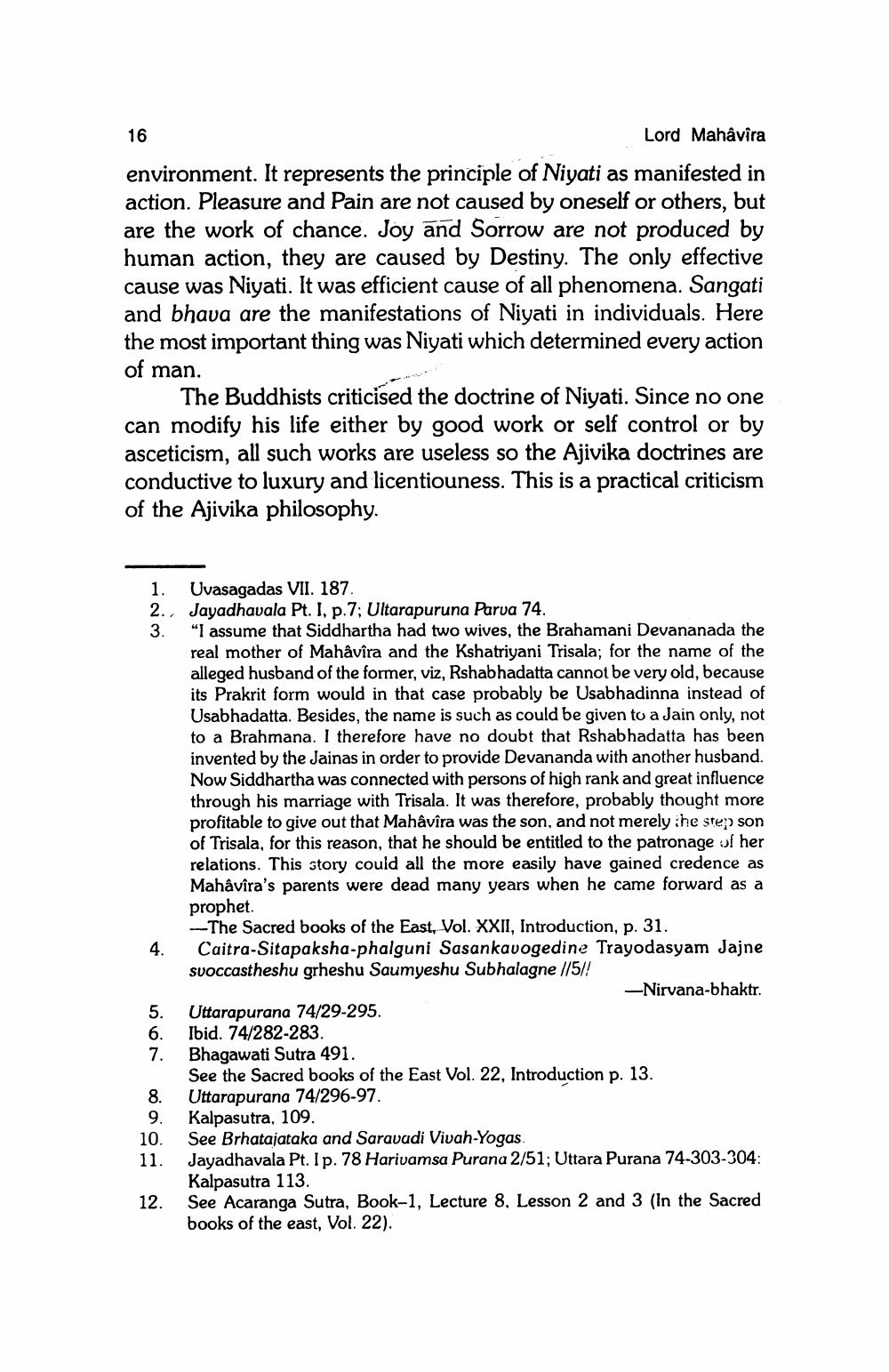________________
16
Lord Mahavira environment. It represents the principle of Niyati as manifested in action. Pleasure and Pain are not caused by oneself or others, but are the work of chance. Joy and Sorrow are not produced by human action, they are caused by Destiny. The only effective cause was Niyati. It was efficient cause of all phenomena. Sangati and bhava are the manifestations of Niyati in individuals. Here the most important thing was Niyati which determined every action of man.
The Buddhists criticised the doctrine of Niyati. Since no one can modify his life either by good work or self control or by asceticism, all such works are useless so the Ajivika doctrines are conductive to luxury and licentiouness. This is a practical criticism of the Ajivika philosophy.
1. Uvasagadas VII. 187. 2.. Jayadhavala Pt. I, p.7, Ultarapuruna Parva 74. 3. "I assume that Siddhartha had two wives, the Brahamani Devananada the
real mother of Mahâvîra and the Kshatriyani Trisala; for the name of the alleged husband of the former, viz, Rshabhadatta cannot be very old, because its Prakrit form would in that case probably be Usabhadinna instead of Usabhadatta. Besides, the name is such as could be given to a Jain only, not to a Brahmana. I therefore have no doubt that Rshabhadatta has been invented by the Jainas in order to provide Devananda with another husband. Now Siddhartha was connected with persons of high rank and great influence through his marriage with Trisala. It was therefore, probably thought more profitable to give out that Mahâvîra was the son, and not merely he step son of Trisala, for this reason, that he should be entitled to the patronage of her relations. This story could all the more easily have gained credence as Mahavira's parents were dead many years when he came forward as a prophet. --The Sacred books of the East, Vol. XXII, Introduction, p. 31. Caitra-Sitapaksha-phalguni Sasankavogedine Trayodasyam Jajne svoccastheshu grheshu Saumyeshu Subhalagne //5/!
-Nirvana-bhaktr. Uttarapurana 74/29-295. Ibid. 74/282-283. Bhagawati Sutra 491. See the Sacred books of the East Vol. 22, Introduction p. 13. Uttarapurana 74/296-97. Kalpasutra, 109. See Brhatajataka and Saravadi Vivah-Yogas. Jayadhavala Pt. Ip. 78 Harivamsa Purana 2/51; Uttara Purana 74-303-304:
Kalpasutra 113. 12. See Acaranga Sutra, Book-1, Lecture 8, Lesson 2 and 3 (In the Sacred
books of the east, Vol. 22).
WON 0
10. 11.




